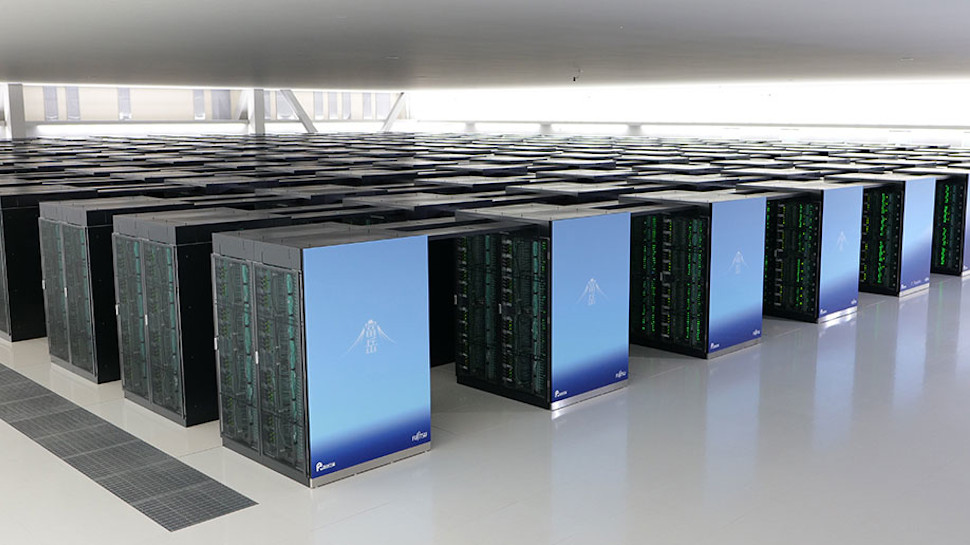
Fujitsu is preparing to introduce a new data center processor in 2027. Called Monaka, the 288-core chip (144 cores x two sockets), will be based on Armv9-A architecture and turn its back on High Bandwidth Memory in favor of PCIe 6.0 (CXL3.0).
The chip will use 3D many-core architecture for more cores, lower latency, and high throughput. This architecture uses a 2nm process for the core die, offering high performance and lower power consumption, and a 5nm SRAM die for all the last level cache, tightly coupled with the core die via Through-Silicon Via (TSV) technology. It will have 12-channel DDR5 memory and be air-cooled.
Fujitsu says Monaka will protect sensitive data in cloud, edge, and HPC environments through Confidential Computing. This secures data by encrypting each virtual machine with a unique key managed directly by the processor hardware and firmware.
Successor to A64fx
“Monaka is expected to redefine the computing experience,” Fujitsu claims. “Projections for 2027 suggest an impressive 2x increase in application performance & 2x power efficiency compared to competitors, establishing Fujitsu-Monaka as a pinnacle of innovation.”
The processor, aimed at AI and HPC systems, is the successor to the Fujitsu A64FX, used in Supercomputer Fugaku, which is based on Armv8-A architecture with 48 cores and HBM2. Fugaku (pictured above) is currently ranked the fourth most powerful supercomputer in the world and the Monaka chip will likely be used in its successor, FugakuNEXT, planned for 2030.
Monaka's hardware will have standard Linux OS support and system architecture, and Fujitsu is collaborating with Arm on open-source software including development tools, compilers and libraries. Monaka will face stiff competition from the dominant x86 processors, but its compatibility with standard software and development environments may help ease adoption.
“Fujitsu-Monaka's commitment to open ecosystems and power-efficient CPUs will play a crucial step in democratizing AI,” the company said in its announcement. “Fujitsu's forward-thinking approach, with the development of the Fujitsu-Monaka CPU, aligns with the vision of a carbon-neutral society. The expansive range of AI applications, from healthcare to defense, underscores the transformative impact of accessible AI.”







